series: The Seven Markets (1)
So reads the sign that seventeen-year-old Ellie MacReady encounters on her way into the village one day in the summer of 1726. A thing of legend, the Market appears only once every century. Ellie grew up hearing her father's stories about the Market, but nothing he told her prepared Ellie for what she was to encounter there.THE MARKET
MIDSUMMER'S DAY, OBERTON VILLAGE
MYSTERIES, WONDERS, AND DREAMS
Reading The Seven Markets was a bit of a rollercoaster ride for me. I went from thinking "oooh, this is good" to regretfully telling Russell that I was going to hate the book (more on why below). I then moved on to cautious optimism, which later morphed into delight. There followed some bewilderment (ditto), but I ended the novel on a good note.
The Seven Markets is described as a science fiction fairy tale. I've always disliked the fact that science fiction and fantasy are nearly always lumped together in non-specialty bookstores.1 The creation of this single category further degrades two genres that are already marginalized as "genre fiction" (as opposed to "real" fiction) by reducing them to subgenres. While I am by no means an expert on either genre, I grew up with a man who did the majority of his book-shopping in that department.2 While there is cross-over between the two genres, I think that's the exception rather than the rule and that their real commonality is their reader.
In any case, The Seven Markets is the rare book that belongs in the science fiction and fantasy department because it is a cross-over that has significant elements from both genres.
From this blog's tag cloud, it is obvious that I read (and post about) more fantasy than scifi. While the gap is actually significantly wider than the tags would have you believe, I do appreciate both genres. I am, however, a particularly picky reader of the two genres, mostly because I become overwhelmed by the heaviest versions of either. The bewilderment mentioned above is a result of that tendency of mine, while the possible hatred relates to a particular fantasy trope3 for which I usually have no patience.
The Seven Markets is like nothing I've read before. The novel, like the Market itself, is full of endless wonders, but it is also tightly constructed. As a reader you never know what will happen next. I'm loathe to go into too much detail on the plot because much of the novel's magic--and what makes it such a compelling read--is in how and how much it reveals itself. I'd just caution readers not to be put off by the (intentionally) jarring transitions between the first few chapters. While those types of transitions continue to move the narrative along, you do become accustomed to them.
If you are interested in The Seven Markets, but not sold yet, check out the sample available on the author's website.
For what it's worth, Russell and I have already purchased two copies of The Seven Markets to give as gifts4 (it's a particularly good choice for lovers of fantasy, science fiction, and strong, female protagonists) and intend to purchase at least one more in the very near future for the same reason.
I have to admit, though, that I'm looking forward to Hoffman's next book, Beautiful Handcrafted Animals (forthcoming Spring 2013),5 much more than I am Ellie's next adventure. Of course that doesn't mean that I won't whip though The King's Glamour (forthcoming Summer 2013) as soon as I can get my hands on it.
n.b. Links within this post either go to Amazon (no referral) or Hoffman's website, rather than my usual.
- Case in point: Amazon.
- My father is the first person I disappointed by my inability to slog through The Lord of the Rings.
- In the footnotes because specifying this could be considered a SPOILER. I don't think it's too much of a spoiler, but continue at your own risk.
I generally dislike (and sometimes despise) stories that involve humans crossing over into the faerie realm and getting stuck there outside of time. - Even though The Seven Markets is only available via Amazon, a company that I'm trying not to patronize when I can help it.
- David (oh, jeeze, see the disclosure statement) describes this one as "suburban fantasy" (as opposed to urban fantasy; forgive the lazy Wikipedia link), which sounds just like my cup of tea.
disclosure: I received a review copy of The Seven Markets from the author, with whom I am friendly.


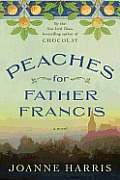 I am no longer the Vianne Rocher who blew into town eight years ago. [...] I am in charge of my destiny. I call the wind. It answers to me.(23)
I am no longer the Vianne Rocher who blew into town eight years ago. [...] I am in charge of my destiny. I call the wind. It answers to me.(23)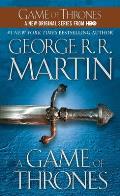 Despite hearing people rave both about the A Song of Ice and Fire books and the
Despite hearing people rave both about the A Song of Ice and Fire books and the 
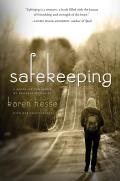 Teenage Radley Parker-Hughes is volunteering at an orphanage in Haiti when the President of the United States is assassinated. Despite the reports that have managed to filter to her remote location, Radley decides that she must return home to be with her parents during this time of unrest. When she arrives in Manchester, New Hampshire, she finds the country under martial law. Her parents' phone has been disconnected. She can't take a bus to Battleboro because she lacks the appropriate travel documents for crossing state lines. Radley's only choice is to walk home along country roads, trying to avoid being caught out after the newly imposed curfews.
Teenage Radley Parker-Hughes is volunteering at an orphanage in Haiti when the President of the United States is assassinated. Despite the reports that have managed to filter to her remote location, Radley decides that she must return home to be with her parents during this time of unrest. When she arrives in Manchester, New Hampshire, she finds the country under martial law. Her parents' phone has been disconnected. She can't take a bus to Battleboro because she lacks the appropriate travel documents for crossing state lines. Radley's only choice is to walk home along country roads, trying to avoid being caught out after the newly imposed curfews.
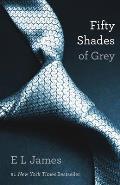
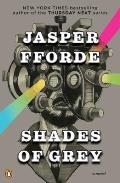
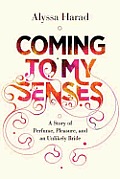 Author Alyssa Harad is a perfumista and a contributor to
Author Alyssa Harad is a perfumista and a contributor to 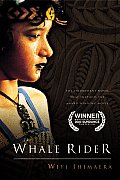 Eight-year-old Kahu, a member of the Maori tribe of Whangara, New Zealand, fights to prove her love, her leadership, and her destiny. Her people claim descent from Kahutia Te Rangi, the legendary "whale rider." In every generation since Kahutia, a male heir has inherited the title of chief. But now there is no male heir, and the aging chief is desperate to find a successor. Kahu is his only great-grandchild--and Maori tradition has no use for a girl. But when hundreds of whales beach themselves and threaten the future of the Maori tribe, it is Kahu who saves the tribe when she reveals that she has the whale rider's ancient gift of communicating with whales.
Eight-year-old Kahu, a member of the Maori tribe of Whangara, New Zealand, fights to prove her love, her leadership, and her destiny. Her people claim descent from Kahutia Te Rangi, the legendary "whale rider." In every generation since Kahutia, a male heir has inherited the title of chief. But now there is no male heir, and the aging chief is desperate to find a successor. Kahu is his only great-grandchild--and Maori tradition has no use for a girl. But when hundreds of whales beach themselves and threaten the future of the Maori tribe, it is Kahu who saves the tribe when she reveals that she has the whale rider's ancient gift of communicating with whales.
 A classic novel of adventure, drawn from London's own experiences as a Klondike adventurer, relating the story of a heroic dog, who, caught in the brutal life of the Alaska Gold Rush, ultimately faces a choice between living in man's world and returning to nature
A classic novel of adventure, drawn from London's own experiences as a Klondike adventurer, relating the story of a heroic dog, who, caught in the brutal life of the Alaska Gold Rush, ultimately faces a choice between living in man's world and returning to nature

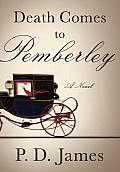 I mentioned
I mentioned 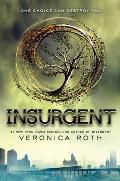 Considering how much I liked
Considering how much I liked 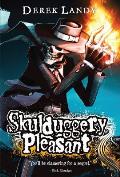 Meet Skulduggery Pleasant: ace detective, snappy dresser, razor-tongued wit, crackerjack sorcerer, and walking, talking, fire-throwing Skeleton — as well as ally, protector, and mentor of Stephanie Edgley, a very unusual and darkly talented 12-year-old. These two alone must defeat an all-consuming ancient evil. The end of the world? Over Skulduggery Pleasant's dead body.
Meet Skulduggery Pleasant: ace detective, snappy dresser, razor-tongued wit, crackerjack sorcerer, and walking, talking, fire-throwing Skeleton — as well as ally, protector, and mentor of Stephanie Edgley, a very unusual and darkly talented 12-year-old. These two alone must defeat an all-consuming ancient evil. The end of the world? Over Skulduggery Pleasant's dead body.
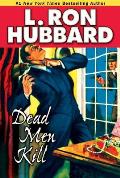 When several of the city's most respected citizens are inexplicably killed by what appear to be zombies, all Detective Terry Lane has to go on is a blue grey glove, a Haitian pharmacy bill for some very unusual drugs and a death threat from a mysterious stranger. Matters are soon complicated when a beautiful nightclub singer shows up who claims to have information that could solve the case, but whose motives are plainly suspect. Against his better judgment, Terry investigates her lead only to find himself sealed in a coffin en route to the next zombie murder—his own.
When several of the city's most respected citizens are inexplicably killed by what appear to be zombies, all Detective Terry Lane has to go on is a blue grey glove, a Haitian pharmacy bill for some very unusual drugs and a death threat from a mysterious stranger. Matters are soon complicated when a beautiful nightclub singer shows up who claims to have information that could solve the case, but whose motives are plainly suspect. Against his better judgment, Terry investigates her lead only to find himself sealed in a coffin en route to the next zombie murder—his own.
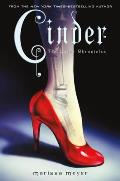 work colleague: So, what are you reading now?
work colleague: So, what are you reading now?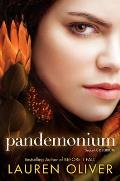
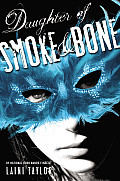 Around the world, black handprints are appearing on doorways, scorched there by winged strangers who have crept through a slit in the sky.
Around the world, black handprints are appearing on doorways, scorched there by winged strangers who have crept through a slit in the sky.
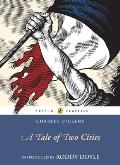 "It is a far, far better thing that I do, than I have ever done; it is a far, far better rest that I go to than I have ever known."
"It is a far, far better thing that I do, than I have ever done; it is a far, far better rest that I go to than I have ever known."
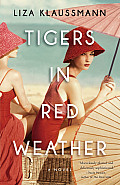 Like
Like  Completed in 1902, The Mount sits in the rolling landscape of the Berkshire Hills, with views overlooking Laurel Lake and all the way out to the mountains. At the turn of the century, Lenox and Stockbridge were thriving summer resort communities, home to Vanderbilts, Sloanes, and other leading families of the Gilded Age. Edith Wharton at Home connects The Mount to that milieu and details Wharton's design of the house and landscape. Embodying principles set forth in Wharton's famous book
Completed in 1902, The Mount sits in the rolling landscape of the Berkshire Hills, with views overlooking Laurel Lake and all the way out to the mountains. At the turn of the century, Lenox and Stockbridge were thriving summer resort communities, home to Vanderbilts, Sloanes, and other leading families of the Gilded Age. Edith Wharton at Home connects The Mount to that milieu and details Wharton's design of the house and landscape. Embodying principles set forth in Wharton's famous book 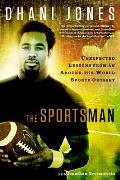 I need to open my comments on
I need to open my comments on 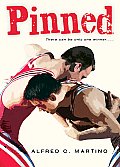 In this gripping story, wrestling dominates the lives of two young men. Ivan Korske and Bobby Zane come from very different backgrounds--yet they both have the drive, determination, and commitment of a champion. And both are determined to have successful wrestling seasons despite having to grapple with their own demons.
In this gripping story, wrestling dominates the lives of two young men. Ivan Korske and Bobby Zane come from very different backgrounds--yet they both have the drive, determination, and commitment of a champion. And both are determined to have successful wrestling seasons despite having to grapple with their own demons.
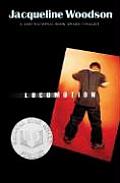 Each kindness makes the world a little better.
Each kindness makes the world a little better.
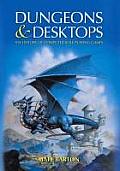 I haven't read
I haven't read 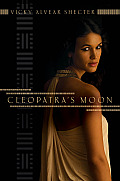
 The twin empires of Egypt and Rome mingle and clash in this towering tragedy. Impulsiveness, passion, mistaken identity and dark humor all color the fascinating dalliance between Antony and Cleopatra, the larger-than-life pair at the center of this play.
The twin empires of Egypt and Rome mingle and clash in this towering tragedy. Impulsiveness, passion, mistaken identity and dark humor all color the fascinating dalliance between Antony and Cleopatra, the larger-than-life pair at the center of this play.

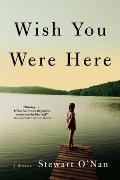 After her husband Henry dies, Emily Maxwell decides to sell their vacation home on Lake Chautauqua.
After her husband Henry dies, Emily Maxwell decides to sell their vacation home on Lake Chautauqua. 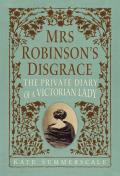 Until the introduction of the Matrimonial Causes Act in 1857, divorce was a privilege granted only to England's elite requiring as it did a private act of Parliament. In 1958 the newly created Court of Divorce and Matrimonial Causes began to grant divorces to couples where adultery (in the case of the wife) or multiple "matrimonial offences" (in the case of the husband) could be verified.
Until the introduction of the Matrimonial Causes Act in 1857, divorce was a privilege granted only to England's elite requiring as it did a private act of Parliament. In 1958 the newly created Court of Divorce and Matrimonial Causes began to grant divorces to couples where adultery (in the case of the wife) or multiple "matrimonial offences" (in the case of the husband) could be verified.
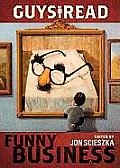 Here it is! Volume 1 [of the
Here it is! Volume 1 [of the 